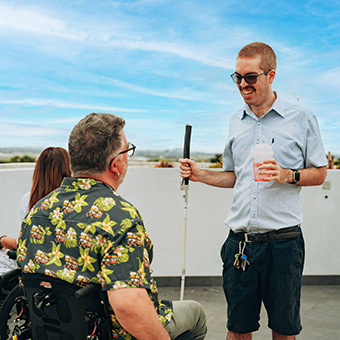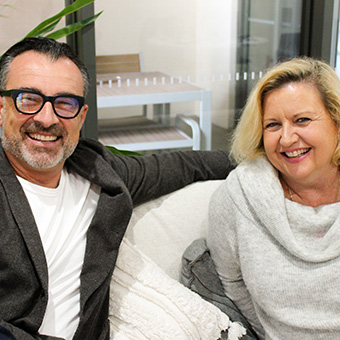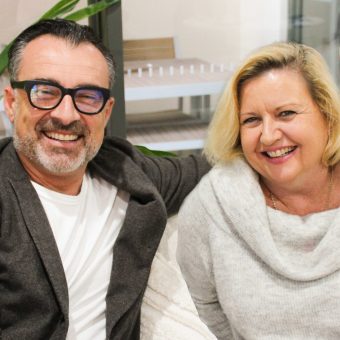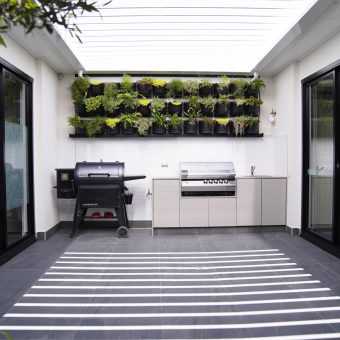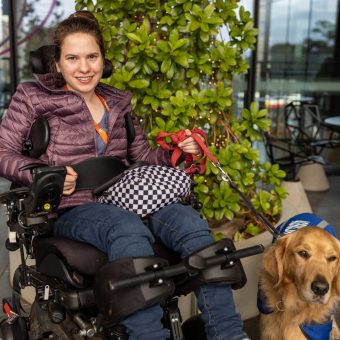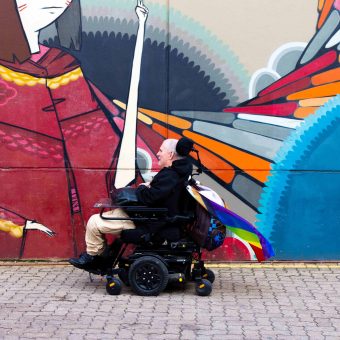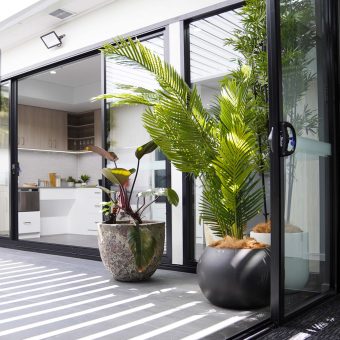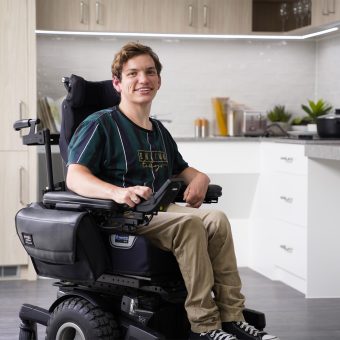
Frequently asked questions
The National Disability Insurance Scheme is an Australian Government scheme that provides funding and support for people with a permanent and significant disability.
It’s not a welfare system – the aim is to give people with disability the support and services they need so they can increase their independence over time.
You can read more about the NDIS and find out whether you’re eligible on their website.
Specialist Disability Accommodation is a type of housing designed for people with extreme functional impairment and/or very high support. SDA is not housing for all people with a disability; it only caters for those who need a specialist housing solution that helps them receive the supports they need.
If you are assessed as needing SDA as part of your reasonable and necessary supports, you will receive NDIS funding to cover the costs of your housing.
The NDIS wants to make sure an SDA isn’t just a building to live in, they want an SDA to be your home. Usually, an SDA is a shared home with a group of other people with similar needs and it’s usually limited to five residents per house.
However, there are other SDA housing models which can provide you with a way of reducing support costs and help you access shared supports while also maximising your choice, control and independence.
These SDA homes range from purpose-built apartments in mixed developments, through to modified free-standing houses. Read more about SDA Housing.
Housing for the 94% of people with disability who don’t get SDA funding, sits with the state/territory governments (except for home modifications).
You may be eligible to receive funding for housing options investigation, broad information and advice provision and/or home modifications.
Under the NDIS, although you might not receive funding for housing, you may receive other forms of support to help you live independently in the community. These may include building your capacity to maintain a tenancy and support for behaviour management.
If you have Specialist Disability Accommodation (SDA) as a component of your NDIS support plan, you are not eligible for social housing.
There are lots of people doing lots of interesting things in this space. Follow our podcast so we can share what we know with you.
This is the expression we use to describe the way you want to live in your home and what type of housing would suit you best. Examples of housing models include group homes, supported independent living and independent living.
The housing model you choose will be based on your answers to these questions:
• Where do you want to live?
• What type of property do you want to live in? Would you prefer a house, unit or townhouse?
• Who you want to live with, if anyone?
• Who would you prefer to own and manage the property?
• What level and type of personal support will you need?
• How much can you pay in rent or mortgage?
There are many housing models for people with a disability. Some examples include:
• New SDA Projects. These are currently in development and usually include several SDA apartments within a mixed development. Take a look at some of Enliven Housing’s SDA properties.
• Traditional Shared Living models such as group homes now have SDA funding. You can search for vacancies on the NDIS website.
• Social Housing including community, public and affordable housing.
• Private rental – either on your own or shared (for those without SDA funding).
• Private ownership i.e. own your own home or live in the family home.
• Some innovative, equity and cooperative models that are being piloted by the NDIS.
• Or you could use your SDA money to buy or build your own home.
A successful contemporary housing model helps you:
• Live with independence, privacy and autonomy.
• Live an ordinary life.
• Feel connected and included with the community.
• Achieve innovative support arrangements.
Successful contemporary housing models are:
• Close to transport, facilities, shops and services.
• Designed with high quality fittings and finishes.
• Accessible for everyone.
If you’d like to know more about what housing models might suit you, please get in touch with us.
The National Disability Insurance Scheme is an Australian Government scheme that provides funding and support for people with a permanent and significant disability.
It’s not a welfare system – the aim is to give people with disability the support and services they need so they can increase their independence over time.
You can read more about the NDIS and find out whether you’re eligible on their website.
Specialist Disability Accommodation is a type of housing designed for people with extreme functional impairment and/or very high support. SDA is not housing for all people with a disability; it only caters for those who need a specialist housing solution that helps them receive the supports they need.
If you are assessed as needing SDA as part of your reasonable and necessary supports, you will receive NDIS funding to cover the costs of your housing.
The NDIS wants to make sure an SDA isn’t just a building to live in, they want an SDA to be your home. Usually, an SDA is a shared home with a group of other people with similar needs and it’s usually limited to five residents per house.
However, there are other SDA housing models which can provide you with a way of reducing support costs and help you access shared supports while also maximising your choice, control and independence.
These SDA homes range from purpose-built apartments in mixed developments, through to modified free-standing houses. Read more about SDA Housing.
Housing for the 94% of people with disability who don’t get SDA funding, sits with the state/territory governments (except for home modifications).
You may be eligible to receive funding for housing options investigation, broad information and advice provision and/or home modifications.
Under the NDIS, although you might not receive funding for housing, you may receive other forms of support to help you live independently in the community. These may include building your capacity to maintain a tenancy and support for behaviour management.
If you have Specialist Disability Accommodation (SDA) as a component of your NDIS support plan, you are not eligible for social housing.
There are lots of people doing lots of interesting things in this space. Follow our podcast so we can share what we know with you.
This is the expression we use to describe the way you want to live in your home and what type of housing would suit you best. Examples of housing models include group homes, supported independent living and independent living.
The housing model you choose will be based on your answers to these questions:
• Where do you want to live?
• What type of property do you want to live in? Would you prefer a house, unit or townhouse?
• Who you want to live with, if anyone?
• Who would you prefer to own and manage the property?
• What level and type of personal support will you need?
• How much can you pay in rent or mortgage?
There are many housing models for people with a disability. Some examples include:
• New SDA Projects. These are currently in development and usually include several SDA apartments within a mixed development. Take a look at some of Enliven Housing’s SDA properties.
• Traditional Shared Living models such as group homes now have SDA funding. You can search for vacancies on the NDIS website.
• Social Housing including community, public and affordable housing.
• Private rental – either on your own or shared (for those without SDA funding).
• Private ownership i.e. own your own home or live in the family home.
• Some innovative, equity and cooperative models that are being piloted by the NDIS.
• Or you could use your SDA money to buy or build your own home.
A successful contemporary housing model helps you:
• Live with independence, privacy and autonomy.
• Live an ordinary life.
• Feel connected and included with the community.
• Achieve innovative support arrangements.
Successful contemporary housing models are:
• Close to transport, facilities, shops and services.
• Designed with high quality fittings and finishes.
• Accessible for everyone.
If you’d like to know more about what housing models might suit you, please get in touch with us.
Enliven Community acknowledges the Indigenous peoples of Australia and celebrate their enduring connections to Country, Knowledge and Stories. We pay our respects to their elders, traditional owners and custodians of these lands. We recognise their continuing connection to the land and waters, and thank them for protecting this land, its coastline, and its ecosystems since time immemorial.
